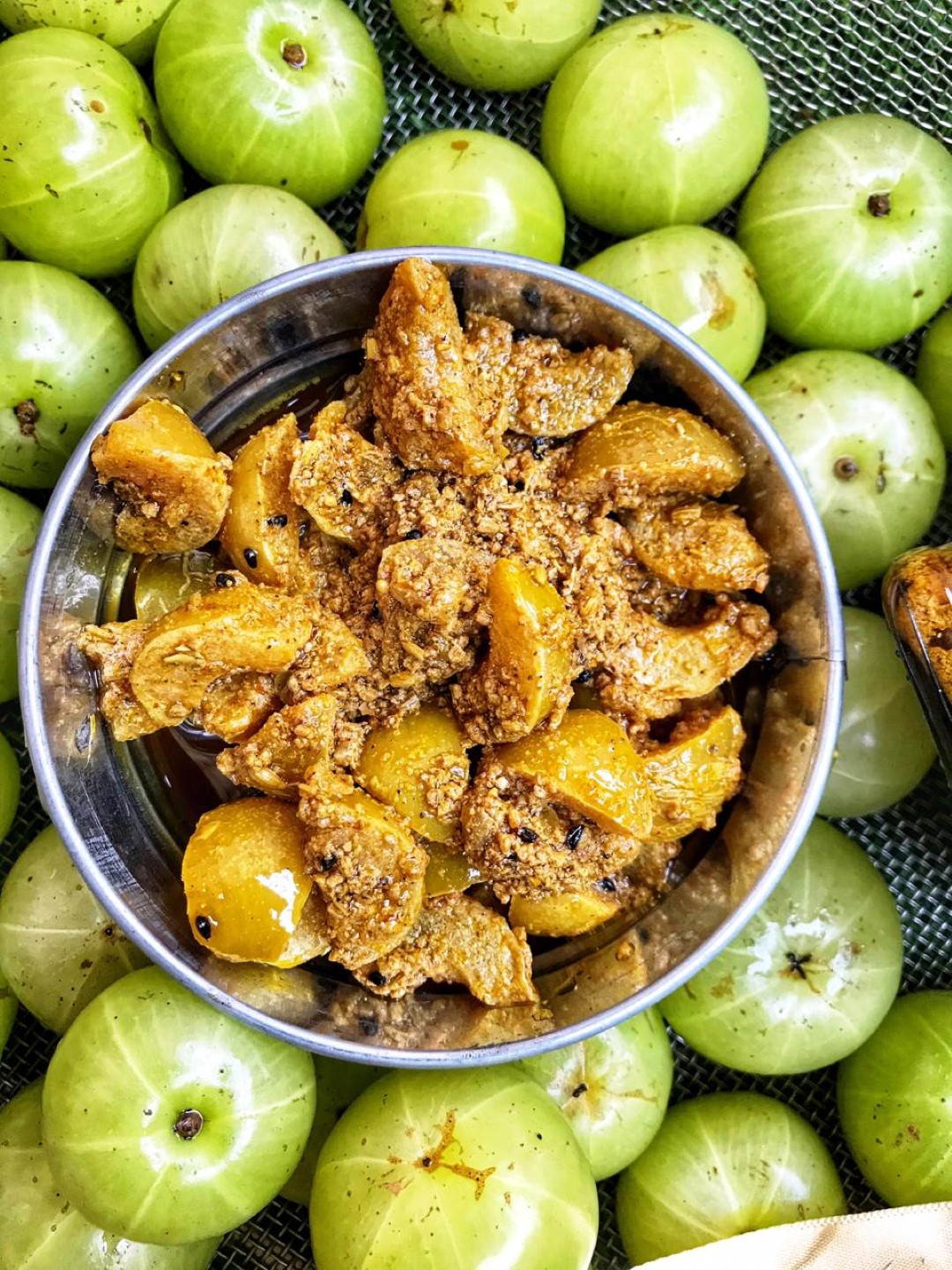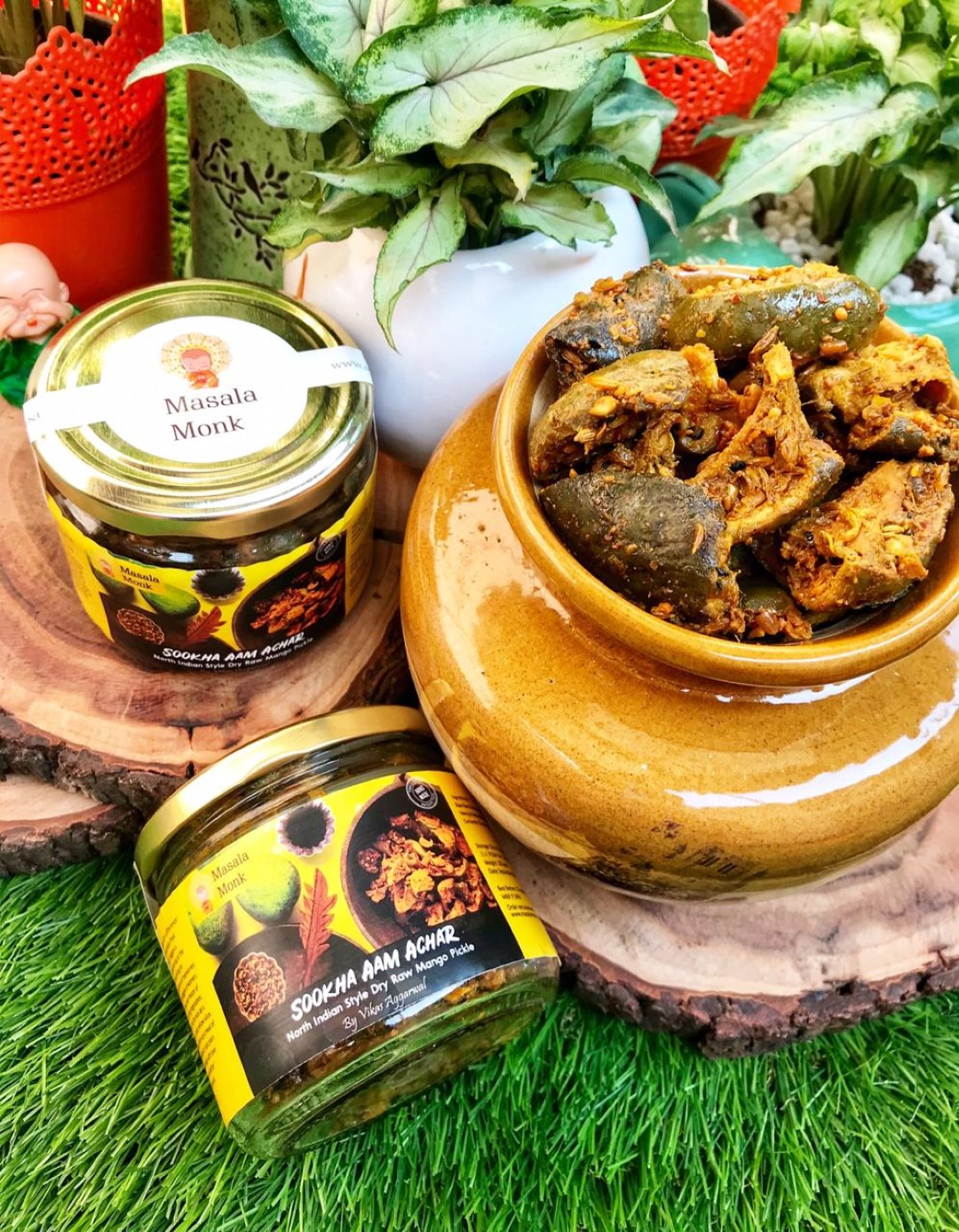
Amle ka Achar, also known as Indian Gooseberry Pickle, is a popular condiment in Indian cuisine. Made from the nutrient-rich fruit called “amla” or Indian gooseberry, this pickle is known for its tangy flavor and potential health benefits. If you’re wondering whether Amle ka Achar is good for your health, let’s delve into its nutritional profile and explore its potential advantages.
🍋 Nutritional Profile of Amle ka Achar 🌿
Amle ka Achar is primarily made from amla, which is considered a powerhouse of nutrients. This fruit is rich in vitamin C, antioxidants, and minerals such as calcium, iron, and phosphorus. The spices and other ingredients used in the pickle, such as mustard seeds, fenugreek seeds, turmeric, and oil, also contribute to its nutritional value.
🌿 Potential Health Benefits of Amle ka Achar 🍽️
- Rich in Antioxidants: Amla is known for its high antioxidant content, which helps protect the body against oxidative stress and free radicals. Antioxidants play a crucial role in maintaining overall health and reducing the risk of chronic diseases.
- Boosts Immunity: Amla is renowned for its immune-boosting properties, thanks to its high vitamin C content. Regular consumption of Amle ka Achar may help strengthen the immune system and fight off infections.
- Digestive Aid: Some of the spices used in Amle ka Achar, such as fenugreek seeds and turmeric, have been traditionally used for their digestive benefits. These spices may aid digestion, alleviate indigestion, and promote a healthy gut.
- Potential Anti-Inflammatory Effects: Turmeric, a common ingredient in Amle ka Achar, contains curcumin, a compound known for its anti-inflammatory properties. Including turmeric in your diet through Amle ka Achar may help reduce inflammation in the body.
- Source of Essential Nutrients: Amle ka Achar provides a concentrated source of essential nutrients like vitamin C, which is vital for collagen synthesis, skin health, and iron absorption. It also offers small amounts of other minerals and phytochemicals present in amla and the spices used in the pickle.
🚫 Moderation and Considerations ⚖️
While Amle ka Achar offers potential health benefits, it’s important to keep a few considerations in mind:
- Sodium and Oil Content: Commercially prepared Amle ka Achar may contain added salt and oil for preservation and flavor. It’s important to consume it in moderation, especially if you’re watching your sodium or fat intake.
- Portion Control: Amle ka Achar is a condiment and should be enjoyed in appropriate portions. Excessive consumption may contribute to an increased sodium intake, which can be detrimental to individuals with high blood pressure or other health conditions.
- Quality and Preparation: If you’re making Amle ka Achar at home, ensure the amla and other ingredients are of good quality and the pickle is prepared hygienically. Proper storage and handling are essential to maintain food safety.
🥗 Incorporating Amle ka Achar in a Balanced Diet 🍛
To enjoy the potential benefits of Amle ka Achar while maintaining a balanced diet:
- Moderation: Enjoy Amle ka Achar in moderation, considering its sodium and oil content.
- Pair with Nutrient-Dense Foods: Use Amle ka Achar as a flavorful accompaniment to nutrient-rich dishes like salads, rice, lentils, or roasted vegetables.
- Balance Flavors: Amle ka Achar is tangy and may have a strong flavor. Consider using it in moderation to balance the taste and not overpower other elements of your meal.
- Homemade Options: If you prefer to have control over the ingredients and flavors, try making Amle ka Achar at home using fresh amla and quality spices. This way, you can customize the recipe to suit your preferences and dietary needs.
🍽️ Join Food Enthusiasts! 🌼
If you are captivated by the aromas and flavors – and wish to connect with fellow food enthusiasts, join our vibrant and engaging foodie community on Facebook. Share your experiences, recipes, and discoveries as we embark on a journey to savour the culinary treasures of the world.
🌼 Conclusion 🍋
Amle ka Achar can be a flavorful addition to your meals, providing potential health benefits alongside its tangy taste. When consumed in moderation and as part of a balanced diet, it can contribute to your overall nutrient intake and offer the advantages of amla and spices.
Remember, it’s always beneficial to consult with a healthcare professional or a registered dietitian, especially if you have specific dietary concerns or medical conditions. Enjoy Amle ka Achar as a flavorful condiment and savor the goodness of Indian cuisine!
🍋🌿🥗













